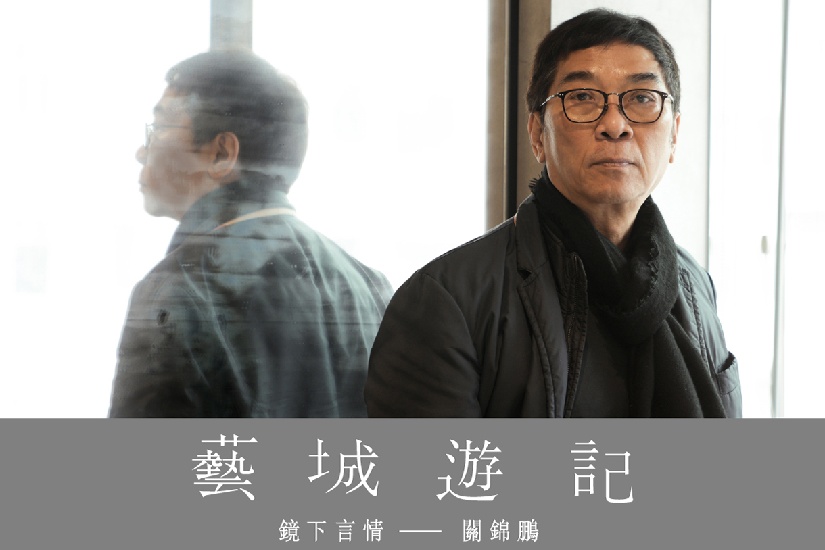Having been in the film industry for over forty years, director Stanley Kwan has created many legendary works for the Hong Kong film industry. Starting with his first film “Women”, he has shown a knack for capturing the “emotions of women”. “Rouge”, “Center Stage”, “Ruan Lingyu”, “Red Rose White Rose”, “Everlasting Regret”, and others have become classics in Chinese cinema. His works have been nominated for major awards at international film festivals such as Berlin and Venice, and have won recognition at the Golden Horse Awards and the Hong Kong Film Awards, solidifying his influence in the Chinese film industry.
During the golden age of Hong Kong cinema in the 1980s, martial arts and comedy elements were prevalent. Director Johnnie To had already broken through the formulaic artistic concepts of Hong Kong cinema, insisting that his works prioritize “character development.” Under his direction, whether it’s romance, heterosexual relationships, or even same-sex relationships, each scene is refined and moving, sincere and touching.
The emotional and rich nature of his character has led him to create many iconic film roles: Leslie Cheung and Anita Mui’s passionate performance in “Rouge,” a love story filled with sighs and sorrows that has become a timeless legend in the film industry, Maggie Cheung’s portrayal of the silent film star Ruan Lingyu, rising to become the first Chinese actor to win the top prize at the Berlin Film Festival, and the subtle and gentle same-sex love story in “Happy Together,” which has become a milestone in Chinese-language LGBTQ films. However, regardless of how the film settings may change, director Wong Kar-wai’s deep feelings for the city and the current generation of people in his bones have always been inseparable from Hong Kong. In recent years, he has been teaching at a university, continuing his passion for film through education.
Last year, director Guan Jinpeng completed the 4K restoration of several films and they were subsequently re-released in theaters. In this episode of “Art City Travelogue,” we invite Director Guan to discuss his many years in the film industry, starting from “emotion,” and see how he portrays delicate and moving love stories through film, as well as how he writes about the intertwined emotions of this city in his works.
“Being a director is actually often a combination of both male and female qualities.”
Looking back on Director Guan’s past works, his films are characterized by their artistic and literary qualities. What truly stands out in his films are the fully developed characters. From the enchanting Ru Hua, the naive Lan Yu, to the complex Wang Qiyao, each character possesses rich depth, making them come alive and feel as if they have truly existed in our lives.
Being able to capture the subtle emotions of each character with precision through the lens, we are all curious about what qualities the director possesses in his personality to help him shape the film characters.
Looking back in 1996, I shot a documentary for the British Film Institute about the centenary of Chinese cinema, revisiting the film history of both sides of the Taiwan Strait and discussing gender issues in Chinese-language films. When talking to director Chen Kaige about “Farewell My Concubine,” he mentioned that being a director should be “androgynous.” Director Guan admitted, “Even though I hadn’t publicly come out as gay at the time, I was very clear about my sexual orientation. I feel that this identity has given me a lot of sensitivity and antennae like a woman.” Later, he returned from the film to himself, and for the first time, he talked to his mother about his gay identity, facing this identity that gave him uniqueness with honesty.
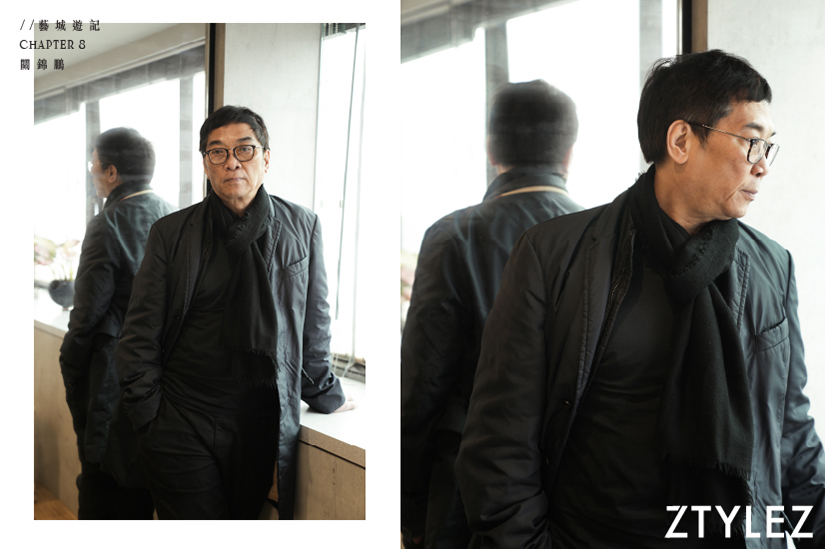
Most people may think that film directors exude a sense of authority and aloofness, but the director in front of us, who speaks politely and remains calm, exudes a gentle and steady temperament, much like the characters in his lens, unhurried and undisturbed. The characteristic of “hermaphroditism” has actually been running through Director Guan’s works. Being able to delicately grasp the softness of women is only because he is also experiencing these entanglements and emotions in his heart. Later, these “women” each walked into different chapters of stories, from the tender “charm” to the resolute and courageous “fierce”, all of which are deeply moving.
If a film is an extension of life for a director, how much of themselves have they truly put into their work, and have they ever tried to incorporate certain life experiences into their film creations?
He shared with us, “It may not be the entire event that is brought into the movie, but it could be the emotions triggered by something, or the feelings towards a person, a character, or even a space. It’s not uncommon, but I think it’s more about the ‘feeling’ of it, which could be something from my memory, or something observed in life, combined with some original imaginative space.” Starting from paying attention to daily life, Director Guan believes that life always provides him with inspiration and impulses for creation.
“The role of the screenwriter is very important because everything starts from the script, and my requirement is for the characters to lead the way.”
From the inspiration of creation to the birth of a complete film, it takes the collective effort of many people. In between are steps such as scriptwriting, art direction, costume design, casting, post-production, and more. So in the mind of a film director, how should the director, screenwriter, and actors cooperate with each other to create a good movie character together?
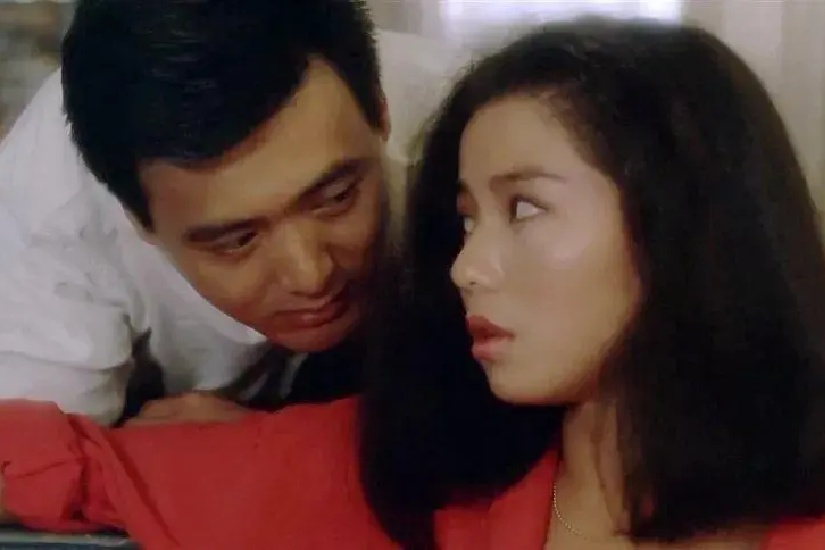
Director Guan shared: “Actually, starting from the first movie ‘Women’s Hearts’, I always prioritize the characters. Once the characters are established, the screenwriter and I would do a lot of research to understand their relationships before brainstorming what stories would unfold when they collide. Whether it’s love or conflict, there is always a reason behind it. You will understand why the character has such thoughts and behaviors.”
Therefore, when “Heart of a Woman” locked in Chow Yun-fat, Miu Kwan-man, and Chung Chuhung as the cast, screenwriter Qiu Gangjian would collect various information such as actors, spaces, environments, etc., while the director would also provide a lot of relevant data. They cooperate seamlessly, striving to enrich every character in the story. Director Kwan is sensitive and delicate, but his creativity is so rational and clear. Rather than pursuing thrilling plot twists, he is more interested in shaping a sincere character.
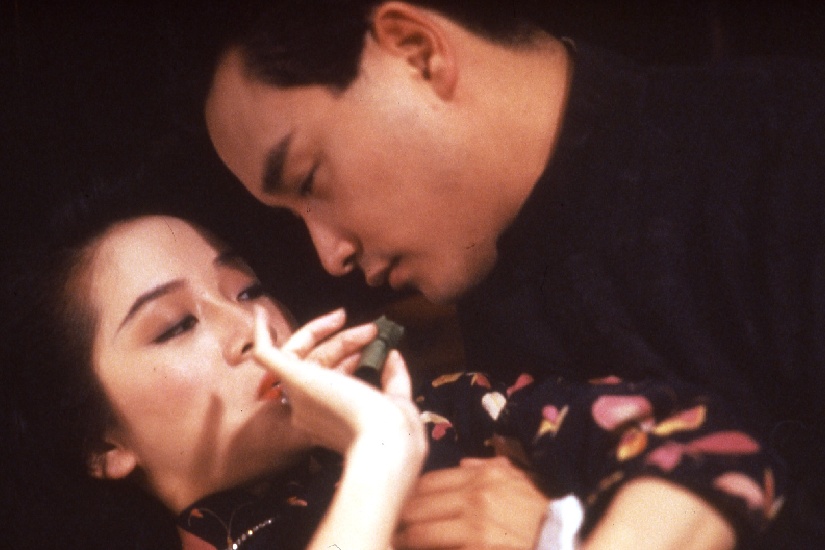
When it comes to its most acclaimed film “Rouge”, although the story is adapted from the novel of the same name by Li Bihua, he and the screenwriter put a lot of effort into character development. He said, “The role of Ru Hua is wonderful in the original novel, but the story focuses more on her waiting for Twelve Master, highlighting the love views of Man Chi Leung and Chu Po Yee, the young couple in the 80s. But for me and Chiu Kang Kin, this should be a love story, not a ghost story. Therefore, I focus more on the story of Twelve Master and Ru Hua in the 30s, which is full of lingering and touching moments.”
Like a dreamy moon, like a fleeting flower, the director and screenwriter grasped this point, coordinating with the image of “Ever-changing Anita Mui” at the time, showcasing the various styles of men’s clothing, women’s clothing, light makeup, and heavy makeup, allowing the characters to be close to the actors and bringing the characters to life.
Fifty years of vows turned into smoke and clouds, the beauty in the mirror finally realized the mistake of misplaced affection, and left in sorrow. Thus, a story of a female ghost returning to the sun turned into a poignant and moving love story. In this love story full of sighs and betrayals, the courage to love and hate still lingers in the hearts of this generation. Putting characters first is generally to let the characters walk into the audience’s memory first.
“As a director, you really need to understand ‘both near and far, both far and near’.”
In any form of art, it is understandable for creators to infuse personal emotions into their work. However, for film directors, they must maintain a certain level of distance from their work. Behind the camera, directors watch actors perform, appearing as mere spectators, but in reality, they are the ones shaping the characters’ emotional trajectories. Since the work originates from the director’s reflections on life, we boldly ask whether the director has ever placed themselves in the shoes of the film characters, making it difficult to detach.
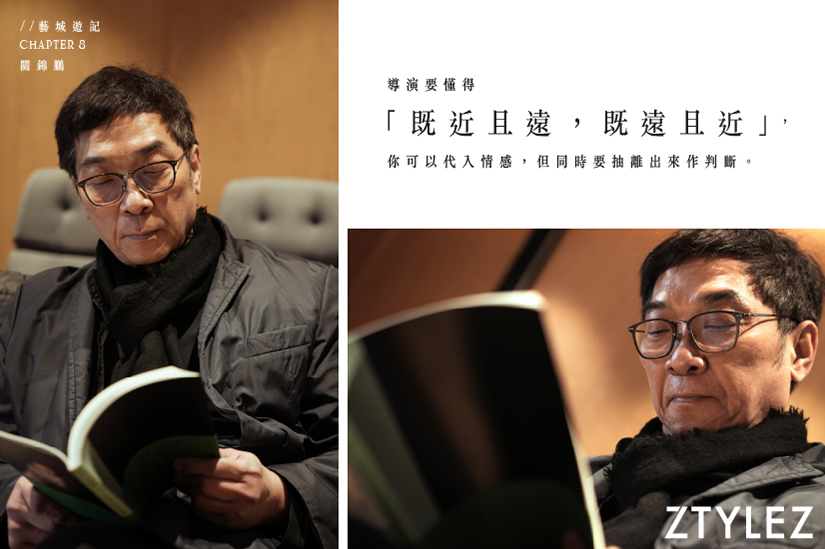
Director Guan answered without hesitation, “No. Take the movie ‘Lan Yu’ for example, because of the issue of gender itself, I feel that sometimes you can’t get too involved. You can incorporate some things into emotions, but at the same time, you need to make some judgments, step back and see if the actor’s performance is really what you want. ‘Both near and far, both far and near’ is the meaning, you need to have a distance.” As a professional director, Guan has long been adept at the distance between himself and the actors, with his own set of rules. He continued, “I think this is already deeply ingrained in my heart, every movie from the stage of discussing the script, this is already necessary.”
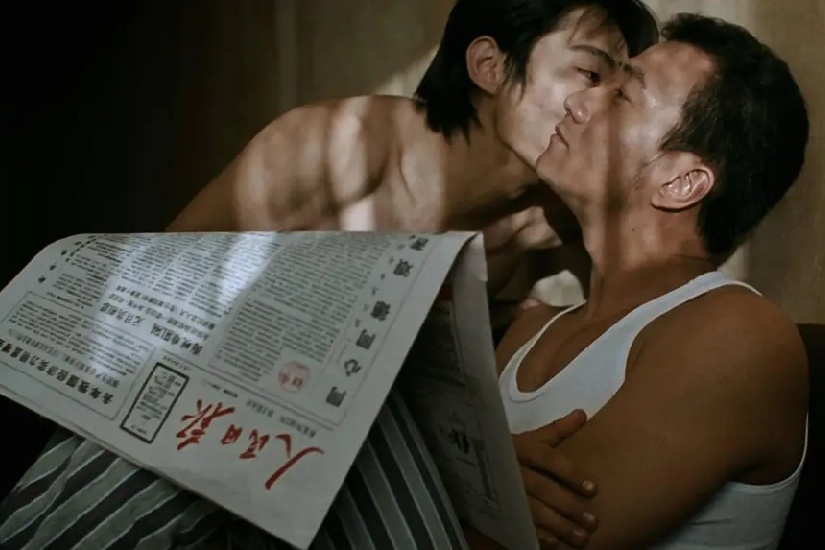
“The Blue Gate” portrayed a deep love that transcends gender boundaries, and the director, Guan Hu, won the Golden Horse Award for Best Director with this work. However, when the casting for this film was first announced, it faced a lot of criticism. People believed that in a male same-sex love story, there should be a clear contrast between masculinity and femininity. While many questioned whether Liu Ye, who played Lan Yu, was not “effeminate” enough, the director believed that roles should not be limited. Just like in his previous works, he would allow the actors to fully express themselves.
Guiding memories: “Both main characters put a lot of effort into it. I remember during the preparation stage of filming, the actors were already living together with the crew in a hotel. We read the script together, carried out various preparations, etc. Especially for these two straight men, it actually took time to adapt. The good thing about Hu Jun is that he always takes care of Liu Ye. Liu Ye is also a very professional actor, but at certain times, Hu Jun is like an older brother, very attentive to his feelings. So when filming started, they basically just performed, completely immersed in their roles, and (gender) no longer hindered them.”
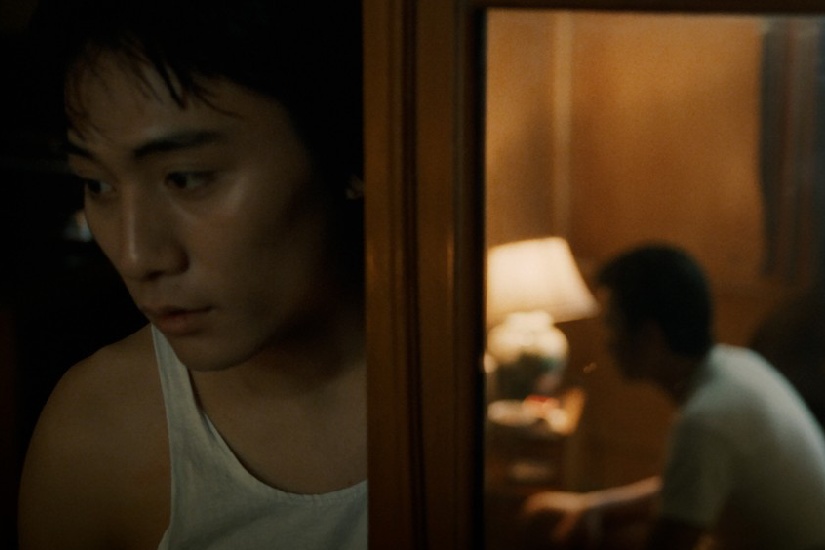
He continued, “On the first day of filming, we shot a scene of two people naked in the hotel. The script supervisor and assistant director were both women at the time, but there was no need to clear the set. The crew members were just doing their job in the room, and the two actors appeared naked. They created something very rare together, very naturally, everyone did something we believed in.” Everything happened naturally, when the director led the actors in the performance, while giving them space, sparks would naturally collide.
Director Guan, whether capturing heterosexual or homosexual relationships, does so with great sensitivity. We all want to know how he navigates different forms of “relationships.” The director sincerely says, “I think it’s all the same, actually everyone is an individual, we shouldn’t let gender dictate us.” Although in form, we can clearly distinguish between a same-sex or heterosexual relationship, for the director, setting aside gender identity, these various stories are just two individuals in love. In the end, one character dies on the construction site, the deceased is gone, leaving the survivor to reminisce on this bitter forbidden love in their remaining life. And the audience outside the frame can’t help but feel sorrowful for this relationship that never had the chance to blossom.
“I communicate very straightforwardly with actors.”
Although the director should maintain a distance from the work after the camera starts rolling, behind the scenes, Director Guan and the actors have a very close relationship. He candidly shares, “I will share some of my personal experiences, emotional setbacks, or even everything with the actors, but at the same time, I want the actors to share the emotions they have stored internally. If an actor gets stuck in a scene halfway through filming, I will remind them to draw a certain emotion from their personal experiences and then move it into the performance, that’s the right approach. I care a lot about communication with the actors.” As a director, Director Guan clearly controls the deployment of emotions and rationality, tactfully guiding the actors’ performances, while also leaving room for rational thinking.
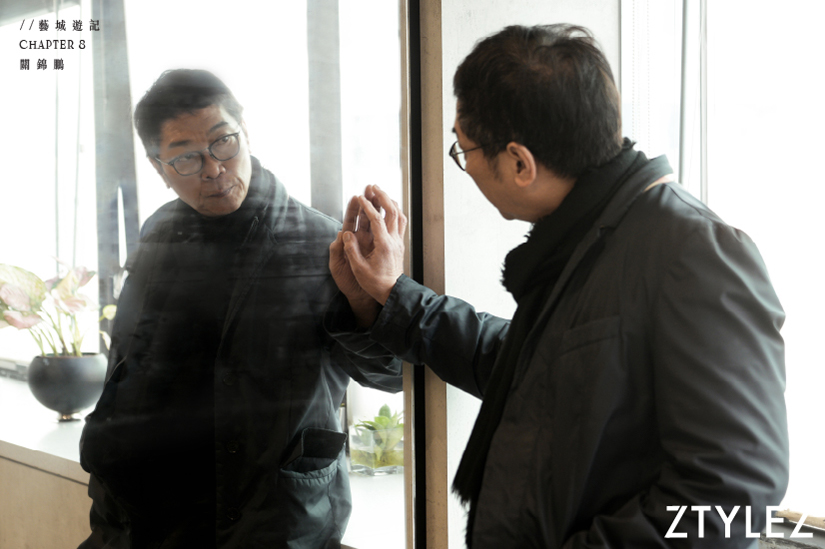
When facing actors, Director Guan can be said to completely open his heart and have a heartfelt conversation with the actors. This kind of candid communication also allows him to have a deeper connection with the actors. He shared, “For example, just now in ‘Blue Rain’ mentioned Hu Jun and Liu Ye, in ‘Rouge’ there’s Anita Mui, in ‘Chang Hen Ge’ there’s Joey Wong, in ‘The Faster, the More Corrupt’ there’s Ke Yulun, Chen Jinhong, Qiu Shuzhen, and so on, we talked in great detail.” Of course, filming always has a wrap-up day, and the actors later return to their own lives and work. The experiences exchanged on set in the past are safely kept in everyone’s hearts. But it is undeniable that they have shared a part of their lives with each other.
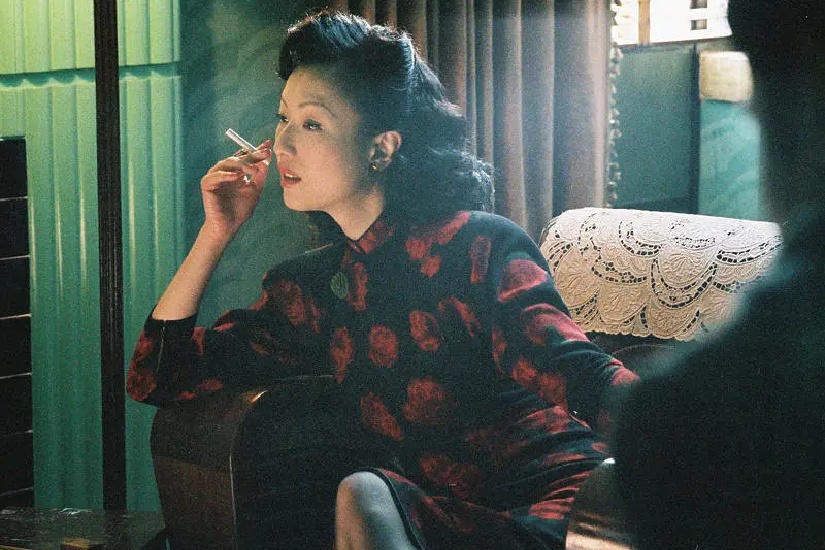
This kind of honest and open communication is private to them, and the director did not share too deeply, but from the feedback of the actors, we know that they all deeply feel the director’s honesty and delicacy. Zheng Xiuwen, who has appeared in director Guan’s works twice, once said in an interview that Guan Jinping is a very dedicated director. He treats every actor with care, allowing them to fully immerse themselves in their roles. The way he interacts with them also makes people feel a gentle power, even the actors are moved by it.
“Good actors and good students are alike in that they both have a strong desire for knowledge.”
Director Kwun Kan Pang’s latest production is the 2018 film “Eight Women One Stage”. In addition to film production, he has also been teaching film-related subjects at City University of Hong Kong in recent years, and participating in the Arts Development Fund’s Heritage Project to guide young directors in their creations, actively supporting new talents in the film industry.
From previously mingling among glamorous celebrities to now becoming a mentor to enlighten students, what are the biggest differences between facing actors and students?
Guan Tao thought for a moment, without deliberately setting boundaries for them, replied: “The only thing is that I feel good actors and students, their desire for knowledge is very high, this trait is very similar. I often remind students that you should have a ‘why’ before thinking about ‘how’, you should ask about everything first. For example, actors have many questions about their roles, they will communicate with the director. Students are the same, when they are exploring something, or need help, I am always happy to help.”
When discussing teaching situations, Director Guan particularly emphasizes that he never tells students how to write a character, but instead gives them more room for imagination. He said, “I think that’s what creativity is about. When they come to my class, it’s not about filming a Guan Jinpeng drama, it’s most important to find their own things.” He also encourages students to watch more films and find the “feeling” they like. Just as Director Guan has mentioned that he likes Japanese directors Yasujiro Ozu and Kenji Mizoguchi, they both gaze at women’s lives through the lens, and the films they produce, through appreciation and transformation, have become classic works that inspire the next generation.
“As a Hong Konger, there are really a lot of things to talk about.”
As a native Hong Kong director, Director Guan has also filmed in different cities such as Shanghai, Beijing, New York, and Taiwan in the past. Even though the times and environmental backgrounds are different, the story creation always starts with Hong Kong as the basis. What creative nutrients does this city of Hong Kong give him?
Director Guan recalled when he was still assisting different directors, the production funds were limited, but there was a sense of unity in the film production circle, leading to a golden age in the local film industry. Having witnessed the heyday of film production, Director Guan believes that the spirit that initially drove him is still present, just inevitably undergoing changes.
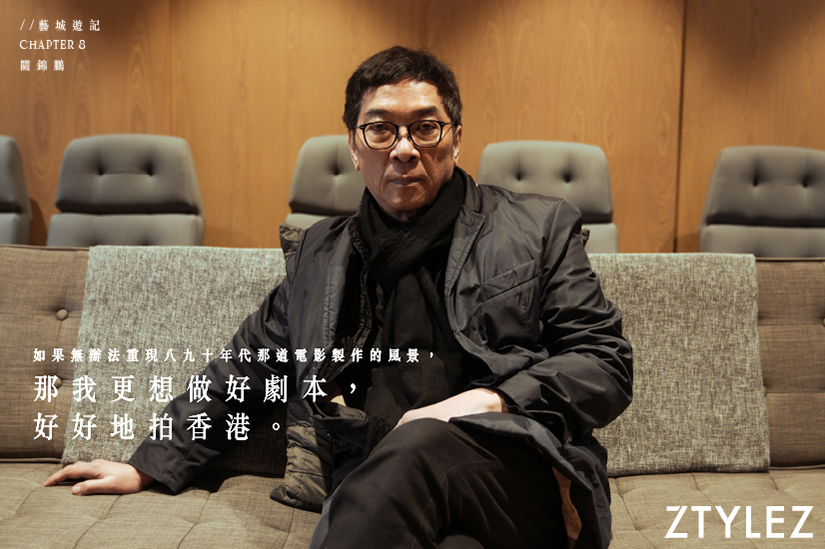
He said, “In the current environment, the glory of the 80s and 90s is no longer present. Filming used to be profitable, but now many young directors need government resources to make films. Looking at it the other way around, since we can’t recreate the production scene of the 80s and 90s, in terms of creation, for example, as a director in Hong Kong, have you noticed the many things that have happened in the city in recent years, in the community and in the architectural space? As a Hong Konger, you should have feelings about these things and record the feelings this place brings to you.”
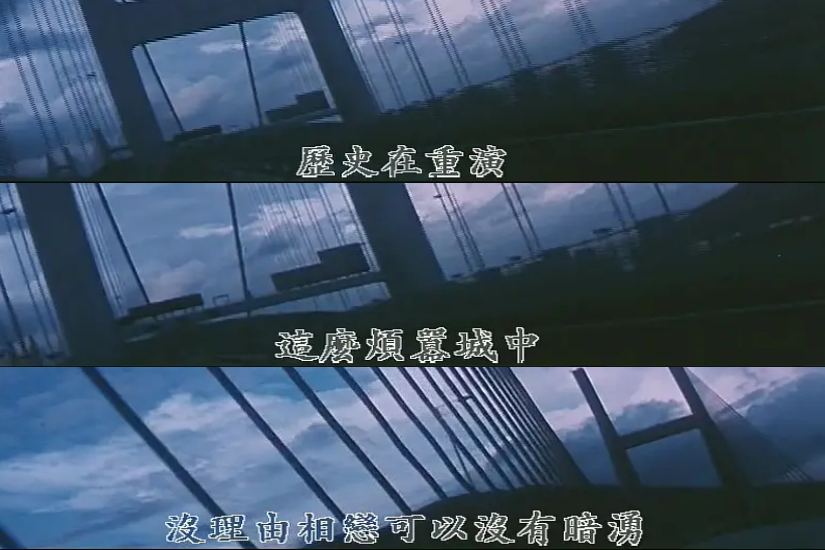
It is not difficult for everyone to notice that director Stanley Kwan often contrasts the film with the current era and city through the concept of mirror image, and thus, issues such as identity exploration and national politics are subtly permeated through the plot. The phrase “unchanged for fifty years” has become the love theme between Ru Hua and Twelve Young Masters in “Rouge” (1987), the portrayal of three women struggling in a foreign land in “Full Moon in New York” (1989), metaphorically representing the experiences of overseas Chinese drifting abroad, and the ending of “Hold You Tight” (1998) where the adapted version of “Dark Surge” by Anthony Wong plays, accompanying the seemingly endless journey on the Tsing Ma Bridge, are all actually turning points around the time of 1997.
In these works, it seems like different characters’ emotions are being written, but in fact, behind each set of works, the director’s own feelings about the city and even the era are implied. The director said, “I know that it is impossible to get as much funding as in the past to film ‘Rouge’ and ‘Ruan Lingyu’, so I want to focus more on the script and film Hong Kong well.” Through today’s interview, we are even more certain that Director Guan’s concern for this city has never ceased.
He said, “Indeed, Hong Kong has experienced many things in recent years. I think you need to find a certain feeling. At this stage, whether it’s the epidemic or anything else, there will always be something that you must express, and it doesn’t necessarily have to be a big production, it could be low-cost. I would encourage young directors who are born and raised in Hong Kong to not lose the feeling of this city when filming.”
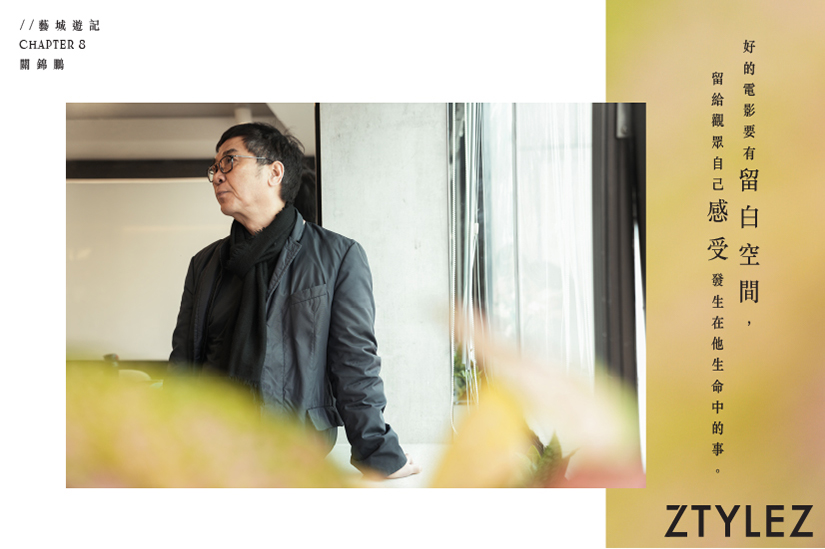
History, culture, and human emotions are all cyclical through generations. The preciousness of a good movie lies in the fact that even after many years, audiences from different eras can find emotions and insights that resonate with them. For Director Guan, he believes that a good movie needs to leave room for the audience to feel what happened in his life. Sometimes, leaving things unsaid is also a kind of cinematic aesthetics. Director Guan is grateful that his works can still be restored in high definition and re-screened on the big screen after several decades. Surprisingly, the audience coming to watch are all from the younger generation. He laughs and says, “It’s interesting that the movies are preserved this way.”
In the long river of light and shadow, classics do not dissipate with the passage of time. Director Guan Jinpeng’s dedication to humanity, film emotions, and even urban emotions in his works will deeply resonate in the hearts of this generation.
–
Executive Producer: Angus Mok
Producer: Vicky Wai
Editor: Ruby Yiu
Videography: Andy Lee, Angus Chau
Photography: Angus Chau
Video Editor: Andy Lee
Designer: Edwina Chan
Special Thanks: Stanley Kwan ; Golden Scene Co. Ltd.

